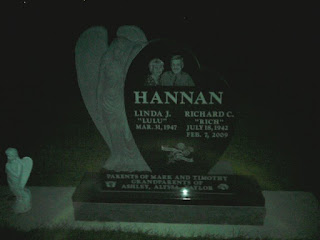The Funeral Will Happen
A couple weeks ago, I attended some continuing education classes in Des Moines to become a "Certified Cremation Arranger." There were many topics of discussion but one speaker in particular caught my attention when giving his presentation on, "The Funeral Will Happen." It was a scripted slideshow and presentation about a woman who had her husband cremated but decided not to have any funeral services for him. Funeral directors are aware of how common this is now becoming; more and more families are saying "direct cremation" and "no services." If you glance through the obituary section in the local paper, I'm sure you will notice "later date" funerals or "no services." The presentation went on to describe how this widow would run into people at the grocery store and they asked, "What happened to your husband?" How despite having no services, she was still offered condolences and people still brought up his death. This widow continued to carry her grief and actually dealt with it over and over again.
"The Funeral Will Happen," is a phrase that is now stuck in my head because I resonate with it so closely. I am like the widow in the story, I avoided having to acknowledge the death of my grandfather who died 8 years ago. I never saw him when he first got sick, I never saw him when he was dying and I never saw him at his funeral. At first I told myself it was because I didn't want to remember him "that way." Then I told myself things were too complicated to attend; my relationship was estranged. After awhile, I had forgotten he had died all together. In my mind he was still living, still healthy and still the grandpa I had always known. Until the day his funeral happened. I saw his headstone for the first time with my name on it. For me, it was in that very moment his funeral happened.
As a culture, we may be losing sight of why funerals are important. We may feel the money isn't worth it or we would be better off remembering that person alive. We may think cremation is the cheapest route or better route. I have nothing against cremation, but it is an act of final disposition, such as burial, it should not define how we choose to honor our loved ones.
From personal experience I can say whether you plan a funeral or not; the funeral will happen...
It's just a matter of when.
"The Funeral Will Happen," is a phrase that is now stuck in my head because I resonate with it so closely. I am like the widow in the story, I avoided having to acknowledge the death of my grandfather who died 8 years ago. I never saw him when he first got sick, I never saw him when he was dying and I never saw him at his funeral. At first I told myself it was because I didn't want to remember him "that way." Then I told myself things were too complicated to attend; my relationship was estranged. After awhile, I had forgotten he had died all together. In my mind he was still living, still healthy and still the grandpa I had always known. Until the day his funeral happened. I saw his headstone for the first time with my name on it. For me, it was in that very moment his funeral happened.
As a culture, we may be losing sight of why funerals are important. We may feel the money isn't worth it or we would be better off remembering that person alive. We may think cremation is the cheapest route or better route. I have nothing against cremation, but it is an act of final disposition, such as burial, it should not define how we choose to honor our loved ones.
From personal experience I can say whether you plan a funeral or not; the funeral will happen...
It's just a matter of when.


Comments
Post a Comment